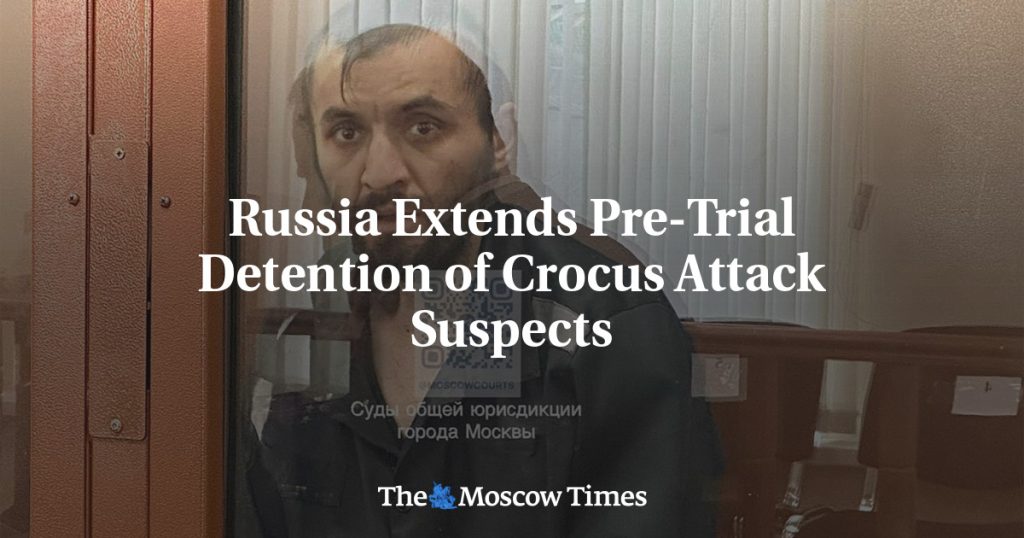The Moscow court has extended the pre-trial detention of eight men accused of carrying out the deadly Crocus City Hall concert attack in March. The attack left 145 people dead and hundreds wounded, with 11 individuals eventually arrested in connection with the shooting. ISIS-K, an Islamic State affiliate, claimed responsibility for the attack. The detained men, all Tajik nationals, have shown signs of torture, sparking protests from Tajikistan, a key ally of Russia. The court ruled to extend their detention until August 22.
Videos shared by the Moscow court system revealed the conditions of the accused gunmen. One suspect, Rachabalizoda, appeared with part of his right ear cut off, supporting claims of torture by Russian law enforcement. Another suspect, Faizov, was brought to the courtroom in a wheelchair and appeared unconscious. The suspects’ treatment has raised concerns about human rights violations. Journalists were asked to leave the courtroom during the hearings, limiting transparency in the judicial process.
Amidst speculation and uncertainty about the motives behind the Crocus City Hall attack, Russia has blamed radical Islamists, Ukraine, and the West. The attack has been deemed the deadliest in Russia since the 2004 Beslan school siege, which resulted in the deaths of more than 300 people. The Investigative Committee of Russia has alleged that “Ukrainian nationalists” were responsible for the attack, claiming they financed the gunmen with cryptocurrency payments. However, no concrete evidence has been presented to support these allegations.
The ongoing investigation into the Crocus City Hall attack has stirred diplomatic tension between Russia and Tajikistan. The treatment of Tajik nationals accused of involvement in the attack has prompted protests and demands for fair treatment. Russia’s reliance on migrant workers from Tajikistan adds a layer of complexity to the situation. The detention of the suspects and the allegations made by Russian authorities have raised questions about political motivations and the handling of the case within the Russian legal system.
The extension of pre-trial detention for the eight accused men suggests that the investigation is ongoing and that authorities are working to gather evidence to support their claims. The court’s decision to keep the suspects in custody until August 22 indicates that the prosecution believes the accused pose a threat or flight risk. The lack of transparency during court proceedings and reports of torture further complicate the case and raise concerns about the defendants’ rights and legal protections. The international community will continue to monitor the situation closely and call for a fair and impartial trial for all those involved in the Crocus City Hall attack.
With tensions escalating and allegations of torture and human rights violations, the Crocus City Hall attack investigation underscores the challenges of balancing security concerns with respect for legal rights and due process. The case highlights the complex geopolitical dynamics at play, including Russia’s relationships with neighboring countries and its response to terrorism threats. The outcome of the trial and any evidence presented will have far-reaching consequences for the accused men, the victims of the attack, and the broader implications for counterterrorism efforts and international relations. As the legal process unfolds, it will be crucial to uphold principles of justice and transparency to ensure a fair resolution to this tragic event.


